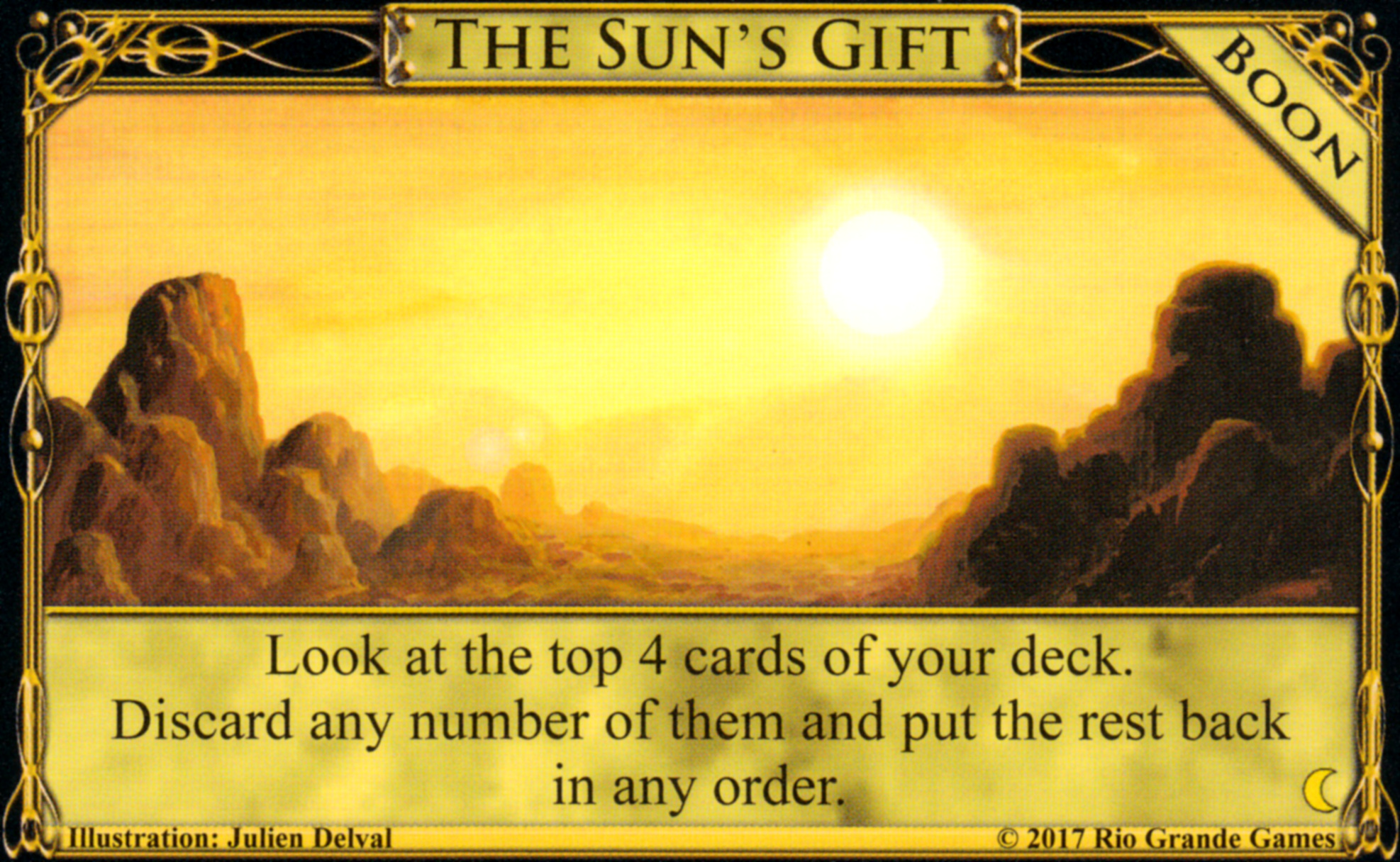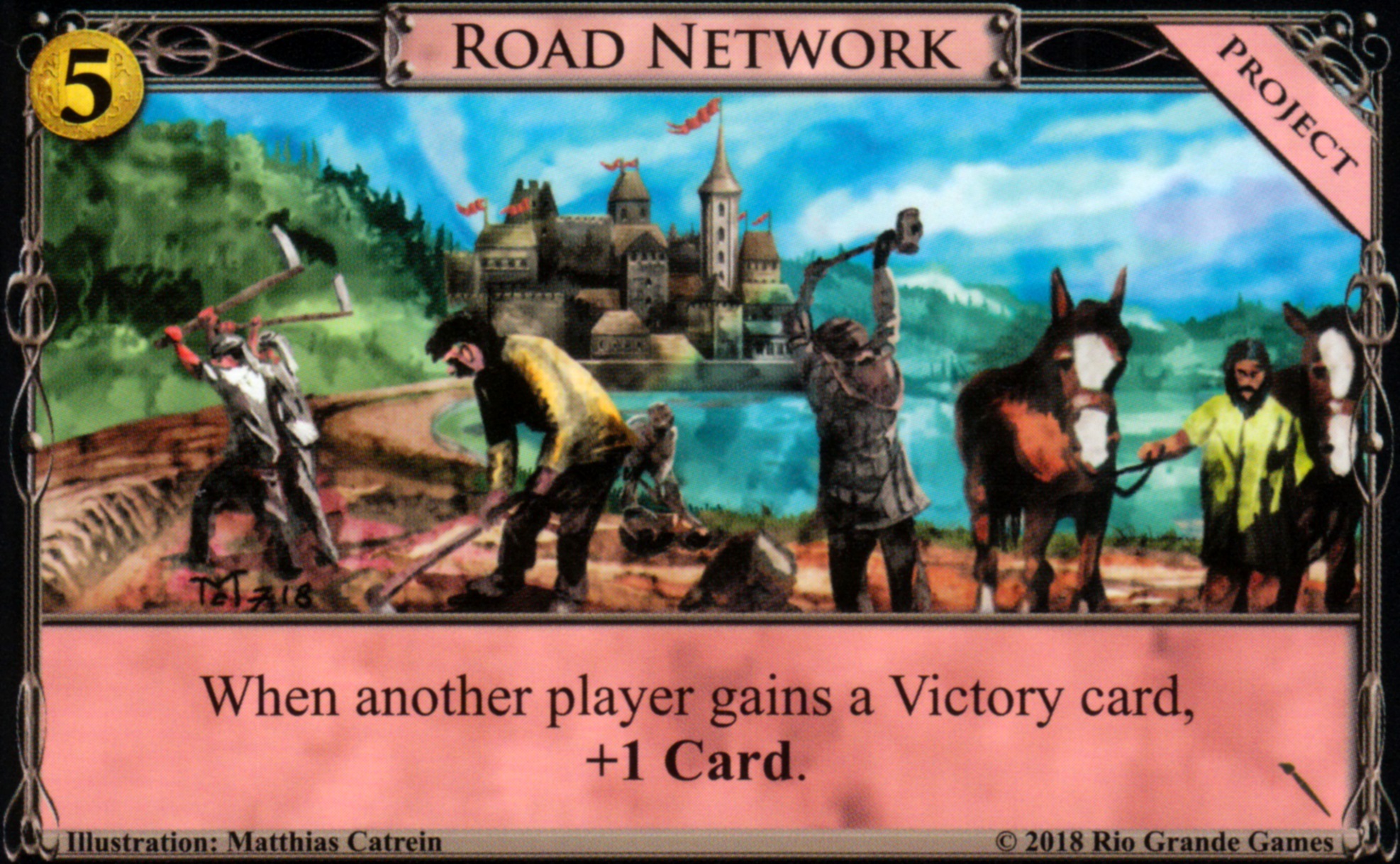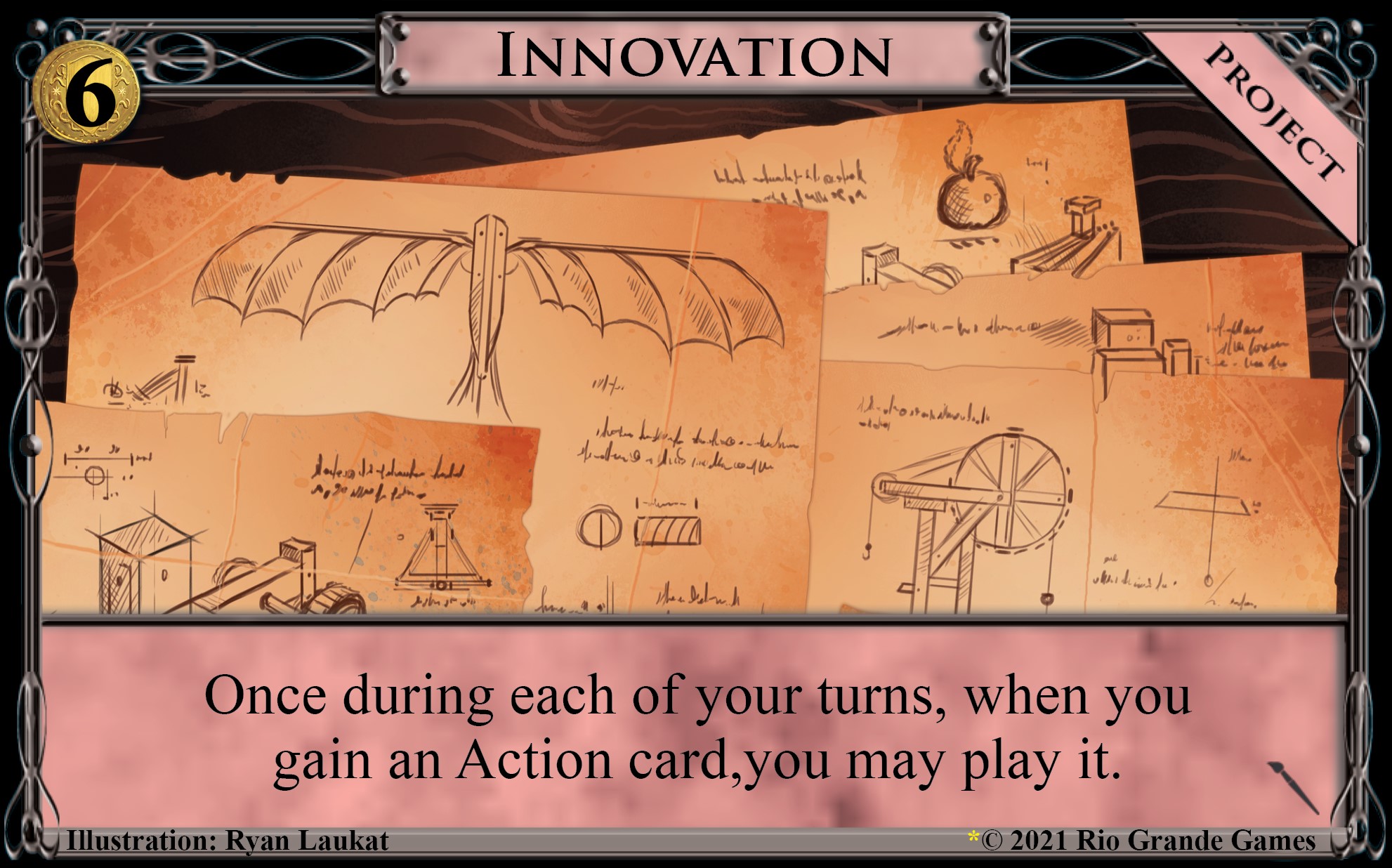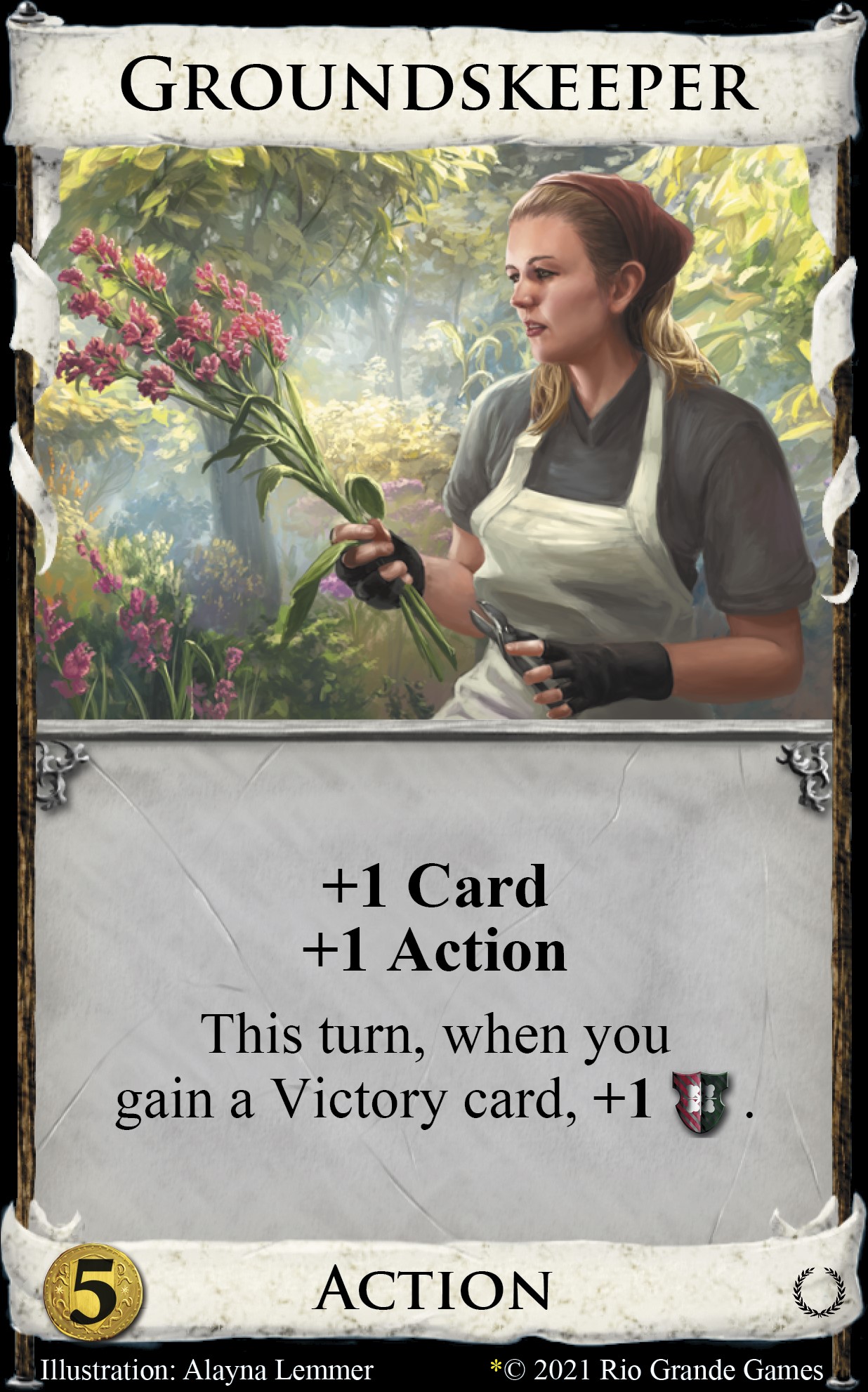62
« on: March 07, 2020, 03:40:19 pm »
For a while I’ve been working from a model of “when you play” abilities triggering at the same time although they are resolved at different points. I’ve found this to be the best way to explain the timing while being largely in line with how the cards are phrased. It also explains how Royal Carriage works with Enchantress in a clear way.
There are three types of triggered abilities that all say “when you play”.*
* when you play, first (before resolving): Reactions, Urchin, Kiln
* when you play, after (after resolving): cards like Citadel (Royal Carriage and Coin of the Realm have the same timing, and I will assume they have the same phrasing, Citadel’s text being the latest version of that phrasing)
* when you play (when you would resolve): Enchantress, Lantern, Ways
I here use “resolve” synonymously with “follow the instructions”, since it’s shorter.
My model for playing a card is (MODEL A):
1) Play card. All “when you play” abilities (of all three types) trigger.
2) Before you resolve the card: Resolve Reactions etc.
3) When you would resolve the card: Resolve Enchantress etc.
4) Resolve the played card.
5) After you resolve the card: Resolve Royal Carriage etc.
The cards all say “when you play”, and this way that’s how we interpret them. It’s akin to how a card’s play ability happens when you resolve it but might set up future effects. For instance, Charm happens when you play (resolve) it, but part of that is setting up something “the next time you buy a card.” As mentioned, this also makes it easy to see how Royal Carriage triggers (and is subsequently resolved) even when we don’t resolve an Enchanted card’s play ability.
I’ve used this model to make explaining clearer and easier (and more in line with card texts). But I’ve realized that it actually has some functional differences compared to the alternative model.
This is the alternative model (MODEL B):
1) Play card.
2) Before you resolve the card: Reactions etc. trigger and are resolved.
3) When you would resolve the card: Enchantress etc. trigger and are resolved.
4) Resolve the played card.
5) After you resolve the card: Royal Carriage etc. trigger and are resolved.
This means that:
“when you play a card, first” actually means “before resolving a played card”.
“when you play a card, after” actually means “after resolving a played card”.
“when you play a card, instead of resolving” actually means “when you would resolve a played card, instead”.
Here are some differences:
Champion has been ruled in different ways, but was ruled as “after resolving” until recently. Going by that ruling, it would work differently depending on the model. With model A, its own when-play ability (“+1 Action”) would not trigger upon it being played, since the ongoing ability would not be active yet in step 1; it would activate in step 4. Since it was not triggered, it would not be resolved in step 5. With model B, however, the when-play ability would trigger and be resolved in step 5, giving you one more Action.
Enchantress: There needs to be a way for you to play a Sheepdog or a Black Cat in step 2 of playing an Enchanted card. Currently I don’t see a way, but it could happen if another player’s Caravan Guard (reacting to your attack), via some Way, makes that player gain a Victory card or makes you gain a card. In that case, it would be like this with model A: Play Militia as your first card, Enchantress and Reactions trigger (step 1), you end up playing a Black Cat (step 2) but Enchantress has already triggered on the first played card, then Enchantress is resolved on Militia. With model B it would be different: Play Militia as your first card, play Black Cat (step 2), Enchantress triggers (and is resolved) when you would resolve the Black Cat, since that is the first card you would resolve this turn, then resolve Militia normally.
Sauna and Merchant: The ruling is that Sauna and Merchant is “after resolving”. Play Sauna, then play Silver, trashing Catacombs and gaining Merchant, playing the Merchant via Innovation. With model A it would go: Play Silver, Sauna’s “when play Silver” ability triggers (step 1), resolve Silver, resolve Sauna (step 5) which leads to playing Merchant, now you are still in step 5 for Silver, but Merchant’s “when play Silver” ability never triggered for this Silver. With model B it would go: Play Silver, resolve Silver, trigger Sauna (step 5) and resolve it which leads to playing Merchant, now you are still in step 5 for Silver, so Merchant also triggers and is resolved, meaning you get +$1.
Which model is Dominion (or should Dominion be) using?
*Some Treasures (and Noble Brigand) also say this. These are not triggered abilities; they are normal play abilities that work exactly like all other cards that you play.







